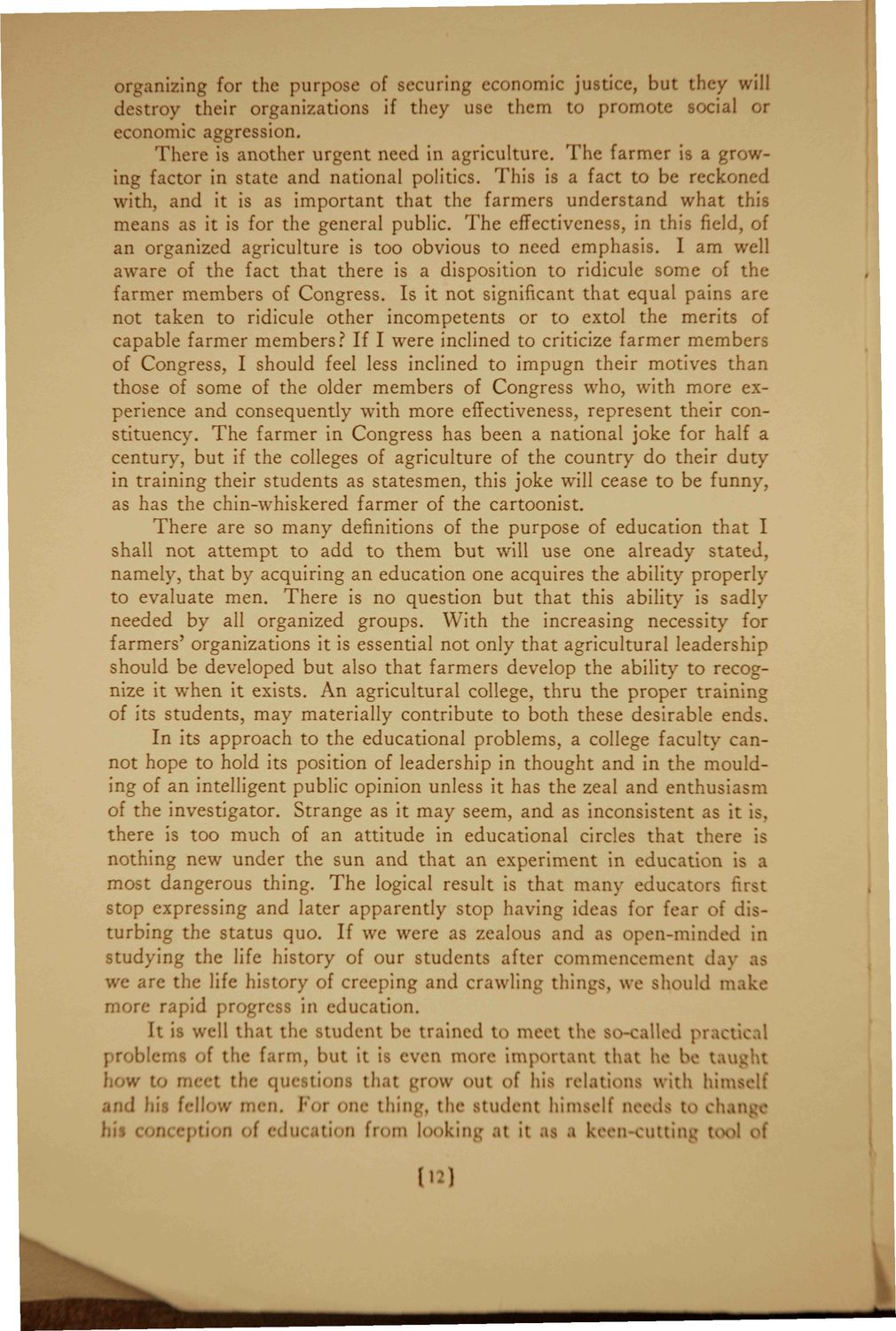| |
| |
Caption: Booklet - Agricultural College and Experiment Station (1924)
This is a reduced-resolution page image for fast online browsing.

EXTRACTED TEXT FROM PAGE:
organizing for the purpose of securing economic justice, but tl y will destroy their organizations if they use them to promote social or economic aggression. There is another urgent need in agriculture. The farmer is a growing factor in state and national politics. This is a fact to be reckoned with, and it is as important that the farmers understand what this means as it is for the general public. The effectiveness, in this field, of an organized agriculture is too obvious to need emphasis. I am well aware of the fact that there is a disposition to ridicule some of the farmer members of Congress. Is it not significant that equal pains are not taken to ridicule other incompetents or to extol the merits of capable farmer members? If I were inclined to criticize farmer members of Congress, I should feel less inclined to impugn their motives than those of some of the older members of Congress who, with more experience and consequently with more effectiveness, represent their constituency. The farmer in Congress has been a national joke for half a century, but if the colleges of agriculture of the country do their duty in training their students as statesmen, this joke will cease to be funny, as has the chin-whiskered farmer of the cartoonist. There are so many definitions of the purpose of education that I shall not attempt to add to them but will use one already stated, namely, that by acquiring an education one acquires the ability properly to evaluate men. There is no question but that this ability is sadly needed by all organized groups. With the increasing necessity for farmers' organizations it is essential not only that agricultural leadership should be developed but also that farmers develop the ability to recognize it when it exists. An agricultural college, thru the proper training of its students, may materially contribute to both these desirable ends. In its approach to the educational problems, a college faculty cannot hope to hold its position of leadership in thought and in the moulding of an intelligent public opinion unless it has the zeal and enthusiasm of the investigator. Strange as it may seem, and as inconsistent as it is, there is too much of an attitude in educational circles that there is nothing new under the sun and that an experiment in education is a most dangerous thing. The logical result is that many educators first stop expressing and later apparently stop having ideas for fear of disturbing the status quo. If we were as zealous and as open-minded in studying the life history of our students after commencement day as we arc the life history of creeping and crawling things, we should make -lore rapid progress in education. It is v II that the student be trained to meet the so-called practical roblemi of the farm, but it is even more important that he be tan ht }. W to n. * the questions that grow out of his relations with himse! 1 I . fellow men. Foi one thin.-, the student himself Deeds to chani i conception of education from looking at it s a keen-cutting tool of [12]
| |